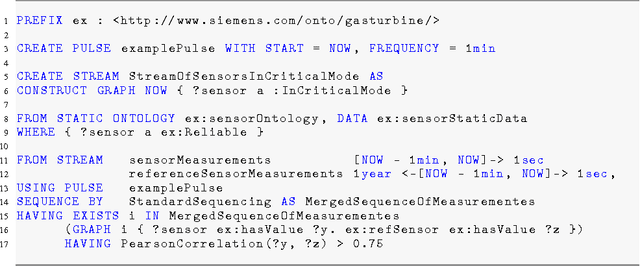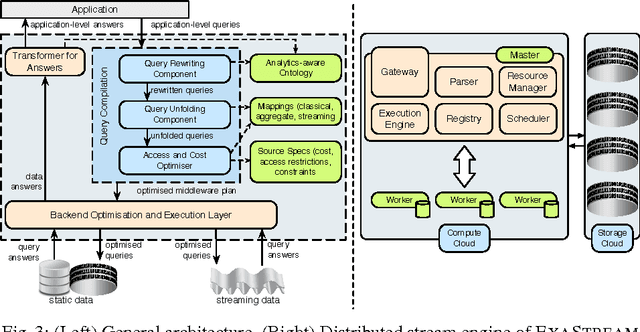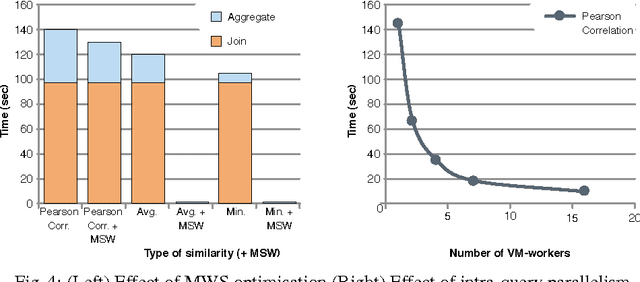Özgür Özcep
Bounded-Memory Criteria for Streams with Application Time
Jul 30, 2020

Abstract:Bounded-memory computability continues to be in the focus of those areas of AI and databases that deal with feasible computations over streams---be it feasible arithmetical calculations on low-level streams or feasible query answering for declaratively specified queries on relational data streams or even feasible query answering for high-level queries on streams w.r.t. a set of constraints in an ontology such as in the paradigm of Ontology-Based Data Access (OBDA). In classical OBDA, a high-level query is answered by transforming it into a query on data source level. The transformation requires a rewriting step, where knowledge from an ontology is incorporated into the query, followed by an unfolding step with respect to a set of mappings. Given an OBDA setting it is very difficult to decide, whether and how a query can be answered efficiently. In particular it is difficult to decide whether a query can be answered in bounded memory, i.e., in constant space w.r.t. an infinitely growing prefix of a data stream. This work presents criteria for bounded-memory computability of select-project-join (SPJ) queries over streams with application time. Deciding whether an SPJ query can be answered in constant space is easier than for high-level queries, as neither an ontology nor a set of mappings are part of the input. Using the transformation process of classical OBDA, these criteria then can help deciding the efficiency of answering high-level queries on streams.
* 11 pages, 2 figures
Towards Analytics Aware Ontology Based Access to Static and Streaming Data (Extended Version)
Aug 15, 2016



Abstract:Real-time analytics that requires integration and aggregation of heterogeneous and distributed streaming and static data is a typical task in many industrial scenarios such as diagnostics of turbines in Siemens. OBDA approach has a great potential to facilitate such tasks; however, it has a number of limitations in dealing with analytics that restrict its use in important industrial applications. Based on our experience with Siemens, we argue that in order to overcome those limitations OBDA should be extended and become analytics, source, and cost aware. In this work we propose such an extension. In particular, we propose an ontology, mapping, and query language for OBDA, where aggregate and other analytical functions are first class citizens. Moreover, we develop query optimisation techniques that allow to efficiently process analytical tasks over static and streaming data. We implement our approach in a system and evaluate our system with Siemens turbine data.
 Add to Chrome
Add to Chrome Add to Firefox
Add to Firefox Add to Edge
Add to Edge